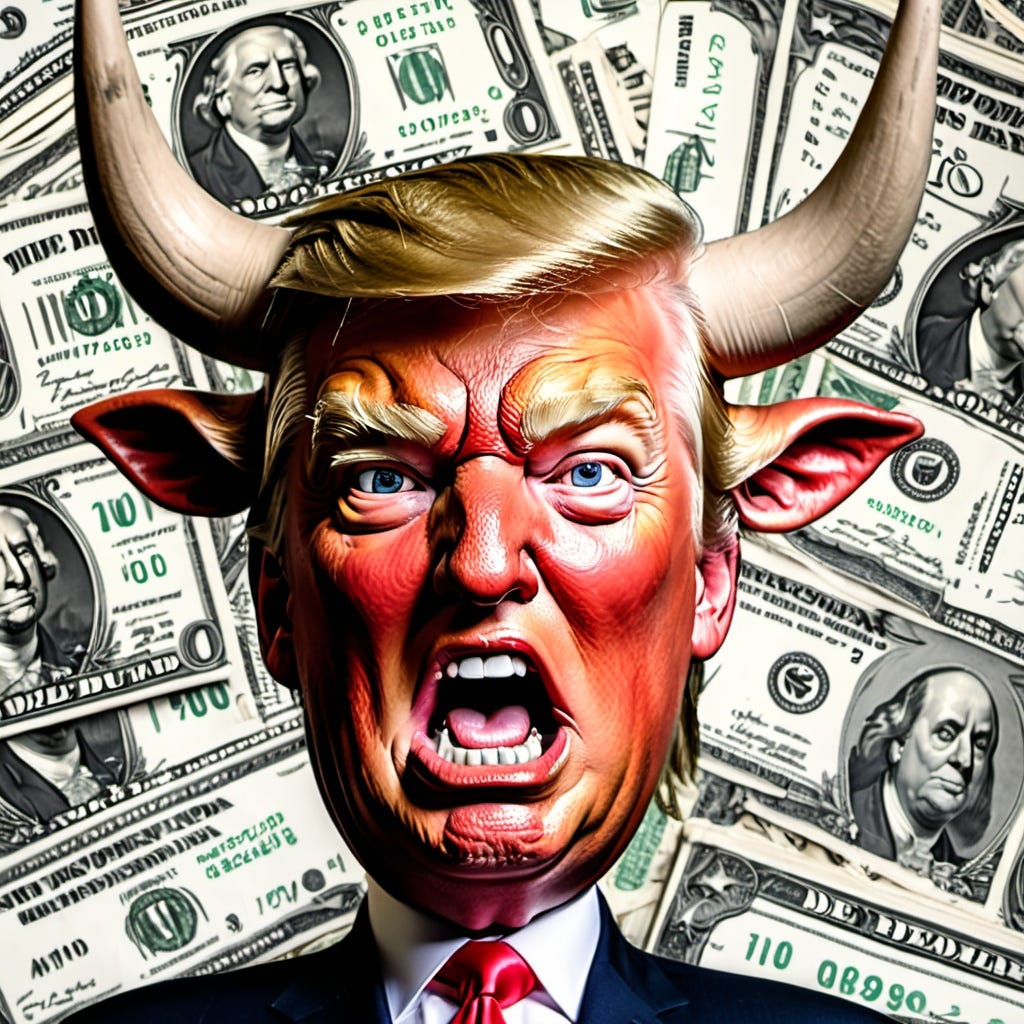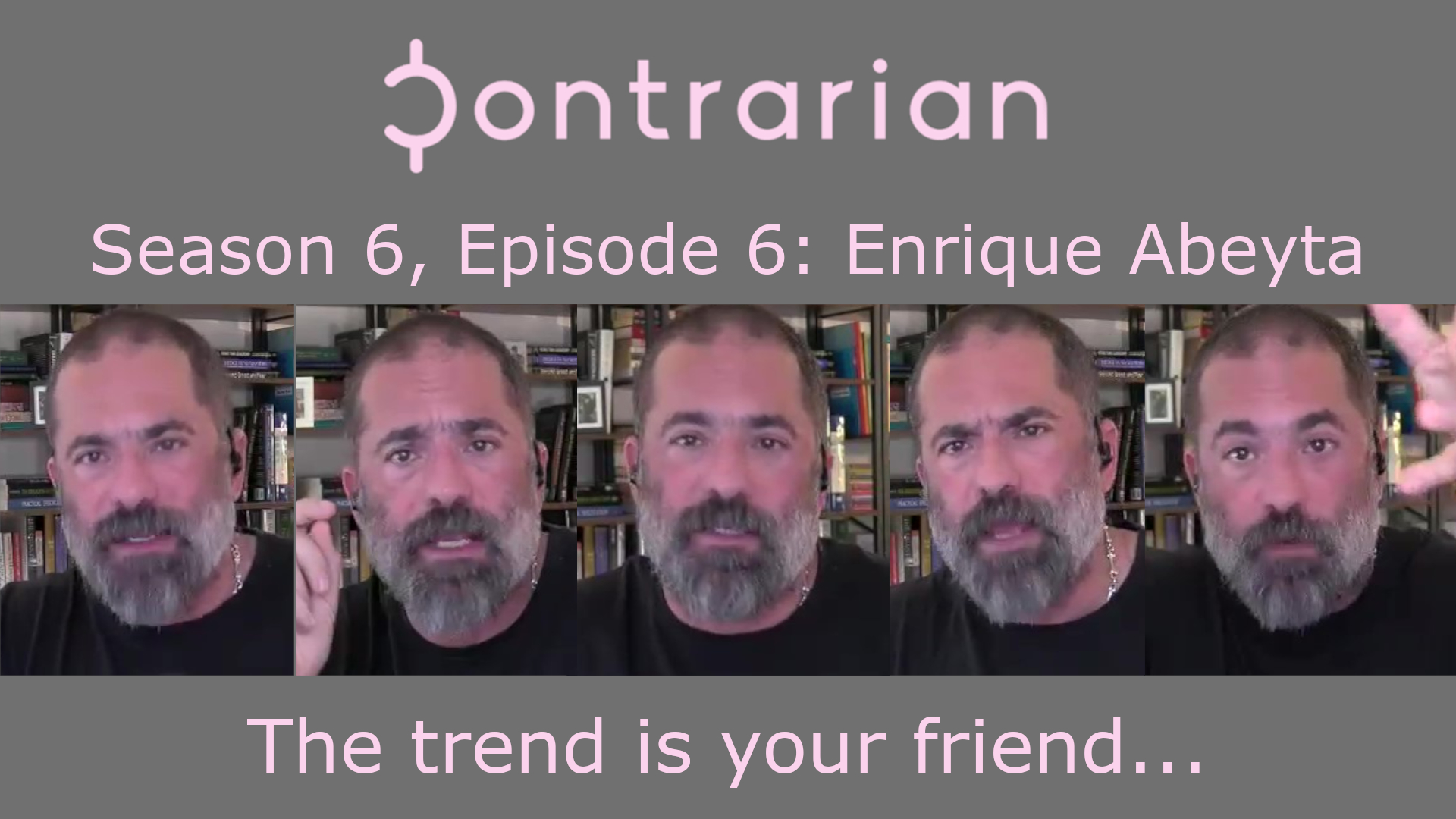Losers include all things renewable energy, bonds, China, and (for now) gold…
This post was originally published the morning of Nov. 6, 2024 in the Daily Contrarian.
The election is over. Trump won. That is going to have broad impacts, not all of which are apparent yet.

The immediate impact of Trump’s victory appears to be a broad move to the riskiest of risk assets. Cryptos being Exhibit A. Small caps are forging ahead. You also have Tesla (TSLA) soaring overnight. Meme stocks are up too, but less.
The losers include all things renewable energy, with solar stocks taking it on the chin overnight. The Invesco Solar ETF (TAN) is down 9% at the time of this writing. Big oil, on the other hand, is gaining ground with Exxon Mobil (XOM) and Chevron (CVX) up 3% each at the time of this writing.
Financials are winners as well. Not just big names like JPMorgan Chase (JPM) and Bank of America (BAC) but regional banks. The SPDR S&P Regional Banking ETF (KRE) is up 8% overnight.
Another loser: China. The iShares China Large-Cap ETF (FXI) is down 2%+. Names like Alibaba (BABA), JD.com (JD) and PDD (PDD) are moving lower.
All That Glitters…
Just keep in mind that the immediate reaction to political events is not always the right one. In 2016 at this time there was a broad sell-off. One can expect things to be volatile, especially as retail investors take short-term gains…
That brings us to a first possible opportunity. There has been a pullback in gold overnight, a likely result of the ‘strong dollar’ trade ushered in by this Trump victory. There are three problems with this trade, however:
- Trump has railed against USD strength;
- Trump’s policies are widely expected to be inflationary. You’ve seen the resulting sell-off in bonds. That means a weaker USD;
- The Federal Reserve is cutting rates, which is also bad for the USD.
One would expect all of this to, in time, be good for gold. During Trump’s first term the precious metal rallied by 55%. Past performance is not always a guide to future results, but gold tends to do well under Republican administrations (+215% in eight years of George W. Bush).
Make no mistake, though: gold has been on a massive tear all year and only recently pulled back from all-time highs:
Still, if gold keeps dropping it may present a buying opportunity keeping items 1-3 above in mind.
Full disclosure: The Contrarian owns some physical gold as well as SPDR Gold Shares ETF (GLD) in a retirement account.
Leave a Comment
